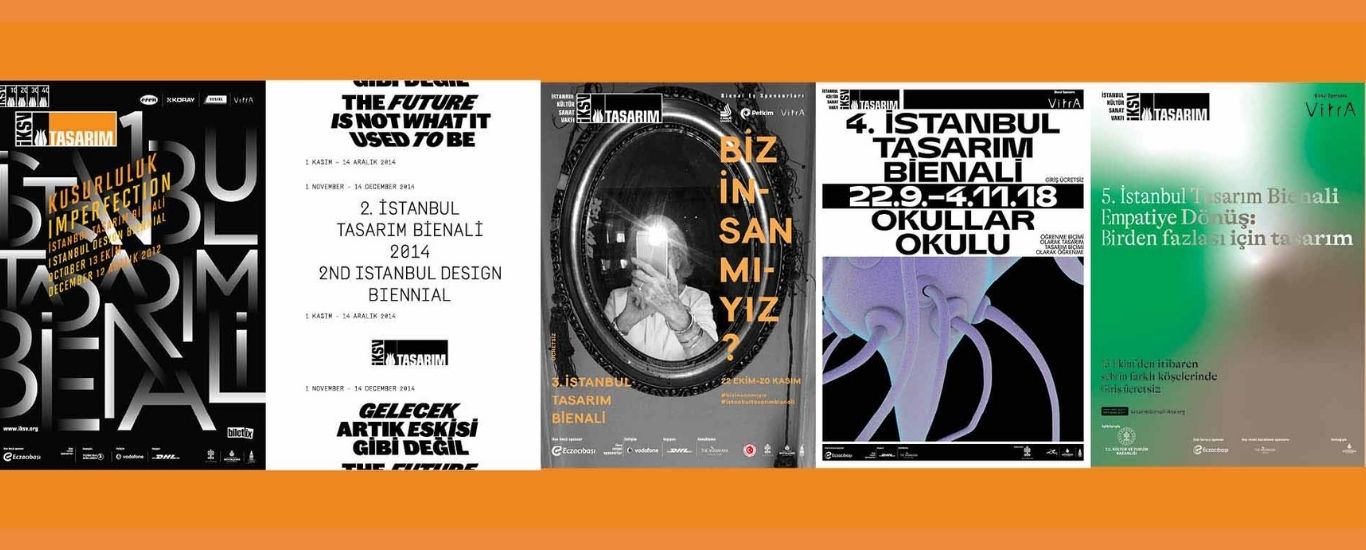The Istanbul Design Biennial, established by the Istanbul Foundation for Culture and Arts (İKSV) in 2010 to advance both public awareness of design and design culture in Türkiye and beyond, has been suspended for an undetermined period of time. Between 2010 and 2021, the Istanbul Design Biennial reached more than one million viewers.
After launching the first Istanbul Festival in 1973, İKSV gradually extended the scope of its activity from classical and contemporary music to cinema, jazz, performing arts, and visual arts. İKSV embraced the field of design in 2010 and organised five design biennials as well as symposia, discussions and talks on the subject during the following ten years. At the end of the 5th Istanbul Design Biennial in April 2021, İKSV decided to suspend the organisation of further design biennials in order to reorient its activities in the field of design and ensure their financial sustainability.
İKSV will continue its efforts to forge a new direction for its activities in the field of design, which continues to impact every aspect of life and culture. In the meantime, İKSV would like to thank the curators, participants and supporters who have contributed to the design biennial thus far and the audiences who have shown unwavering interest.

ABOUT ISTANBUL DESIGN BIENNIAL
Since İKSV’s ‘Why Design, Why Biennial?’ symposium in 2010, the Istanbul Design Biennial has raised awareness about how deeply design affects our daily lives and shapes our culture. Every two years between 2012 and 2020, the Biennial organised exhibitions and events that brought together a diverse cross section of design ideas, explored the relationship between design and other disciplines, and provided a platform for creators and producers in the fields of design and architecture to share their original ideas and projects about the future with the public. The Biennial was a source of inspiration for creative and academic circles, while also promoting dialogue and exchange between them. It built local and international networks between cultural producers and institutions, universities and companies. The Istanbul Design Biennial put the city of Istanbul at its centre, offered solutions for global design challenges, and questioned the very concept of design.
The 1st Istanbul Design Biennial, titled Imperfection, was held in 2012 and comprised two exhibitions: Musibet curated by Emre Arolat at Istanbul Modern, and Adhocracy curated by Joseph Grima at the Galata Greek Primary School. The 2nd Istanbul Design Biennial, curated by Zoë Ryan and titled The Future Is Not What It Used to Be exhibited designs responding to the question of ‘What is the future now?’ and organised “Design Route” tours in 12 districts of Istanbul. In 2016, Beatriz Colomina and Mark Wigley curated the 3rd Istanbul Design Biennial titled Are We Human? The Design of the Species: 2 seconds, 2 days, 2 years, 200 years, 200,000 years. This biennial encompassed many venues, including the Istanbul Archaeological Museum, and explored the long-term effects of design on humanity and the world. The 4th Istanbul Design Biennial, held in 2018 under the title A School of Schools and curated by Jan Boelen, reframed design as a form of learning. Building on the legacy of the previous three editions, the biennial experimented with a new format and offered itself as a space for critical refection on design. The 5th Istanbul Design Biennial curated by Mariana Pestana in collaboration with Sumitra Upham and Billie Muraben and titled Empathy Revisited: Designs for more than one took place in 2020 during the Covid-19 pandemic. Making use of public spaces and digital platforms as well as exhibition venues, the Biennial brought together ideas and projects that sought to give design a new role based on empathy.
With its final Camekân [Display Window] project in 2022, the Istanbul Design Biennial opened a space for new productions based on mutual discussion and learning and contributed to the development of young designers from Türkiye and Europe by bringing them together with mentors. The project was organised in partnership with the Karlsruhe University of Arts and Design (HfG) and received the European Union’s “Common Cultural Heritage: Preservation and Dialogue between Turkey and the EU-II (CCH-II)” grant.









